Purulent gingivitis is a more severe progression of common gingivitis when not treated promptly and begins to form pus pockets under the tooth roots. To overcome this condition, patients need to go to the dentist for examination and specialized treatment. In addition, to support the treatment process, the doctor will also prescribe certain medications. So let’s find out with BIK International Dental Clinic what medicine to take for purulent gingivitis in the article below!
1. What is purulent gingivitis?
Gingivitis is a condition in which the gum tissue under the tooth roots becomes inflamed due to bacteria attacking the oral cavity. These bacteria also decompose leftover food in the oral cavity that is not removed, forming sulfur compounds that lead to bad breath.
Gingivitis can occur in all subjects, all ages, and even children. Plaque in the oral cavity that exists for a long time without being treated promptly will cause gingivitis to progress severely and can form abscesses. At that time, people call this condition purulent gingivitis, which has a dangerous impact on oral health.
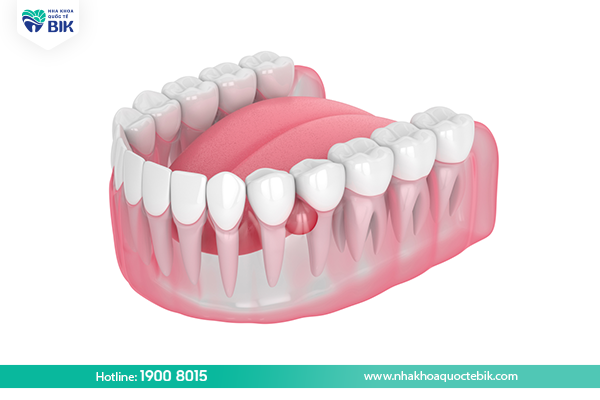
Signs of purulent gingivitis are as follows:
– Toothache because the gums are swollen, darker red than normal and have abscesses.
– High fever, prolonged fever due to infection in the body causing the amount of white blood cells in the blood to be more active.
– A clear feeling of pain when pressing lightly with your hand or when exposed to food.
– A bitter taste is felt due to the abscess at the base of the tooth.
– There are signs of swollen lymph nodes in the neck.
– The base of the tooth may bleed when the inflammation develops strongly.
2. Causes of purulent gingivitis
The main cause of purulent gingivitis is poor oral hygiene, causing food plaque to remain in the oral cavity for a long time and then calcify into tartar. Tartar exists between the gums and the base of the tooth, creating a favorable environment for bacteria to grow and attack the gums, causing inflammation.
In addition, some oral diseases such as periodontitis and pulpitis also cause purulent gingivitis. In addition, the habit of eating sweets and highly acidic foods quickly destroys tooth enamel, leading to tooth decay, gingivitis, periodontitis, etc.
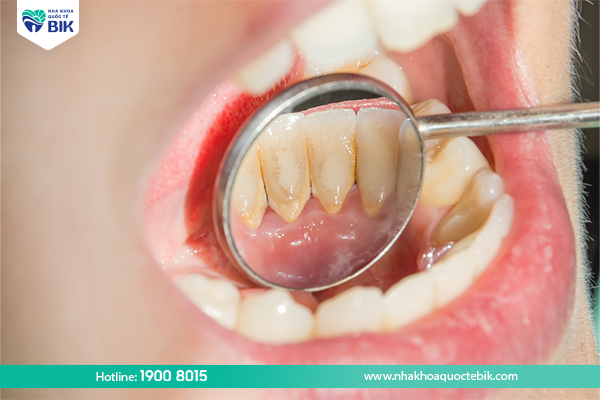
3. What medicine should be taken for gingivitis with pus?
When visiting the dentist, the doctor may prescribe the patient to use some drugs to support the treatment of gingivitis with pus. These medications will generally have a pain-relieving effect, helping the patient feel more comfortable, while promoting the healing process and preventing gingivitis symptoms from recurring.
Note that these drugs should only be used under the guidance of a doctor. Do not use them on your own because they can affect your overall health and are not very effective.
3.1. Pain relievers
Some common pain relievers such as paracetamol, aspirin, ibuprofen, etc. are often prescribed by doctors to help patients relieve pain caused by purulent gingivitis. These drugs contain active ingredients that affect the stomach, so customers need to be careful when using them.
Usually, pain relievers are only prescribed when the patient has severe pain that affects eating and daily activities. In addition, the drug is contraindicated for people with hemophilia, dengue fever, malaria, etc.
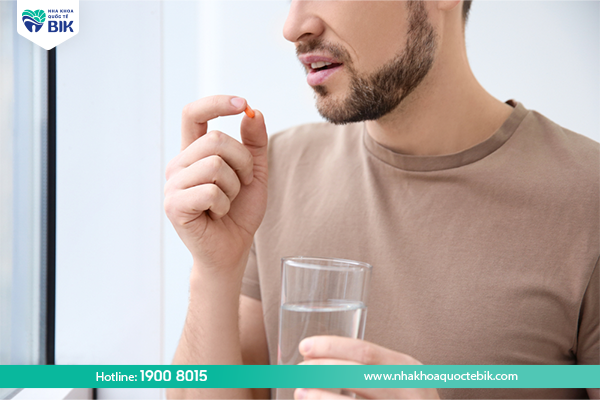
3.2. Antibiotics
Antibiotics will be prescribed in cases where gingivitis with pus is at risk of worsening. The group of antibiotics includes drugs containing beta-lactam, macrolide,… which are substances capable of effectively destroying bacteria and plaque that form under the tooth root causing gingivitis.
In addition, antibiotics for treating purulent gingivitis also contain a combination of two active ingredients, spiramycin (macrolide antibiotic) and metronidazole (anaerobic antibiotic), which are also used for severe gingivitis.
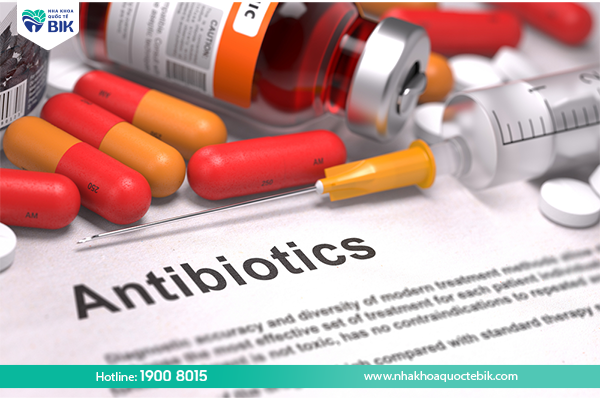
3.3. Non-steroidal anti-inflammatory drugs
Non-steroidal anti-inflammatory drugs are also indicated for treating purulent gingivitis. The drug contains main ingredients such as diclophenac, meloxicam, … to help reduce swelling and redness, while also having the effect of relieving pain and improving symptoms of swelling in the gums. This group of drugs is contraindicated in cases with a history of gastric ulcers.

3.4. Corticosteroids
Corticosteroids are used to inhibit the growth of bacteria that cause gingivitis. The drug contains active ingredients such as prednisolone, dexamethasone, … with strong anti-inflammatory properties that effectively treat pain, swelling, and prevent periodontitis and gingivitis from recurring.
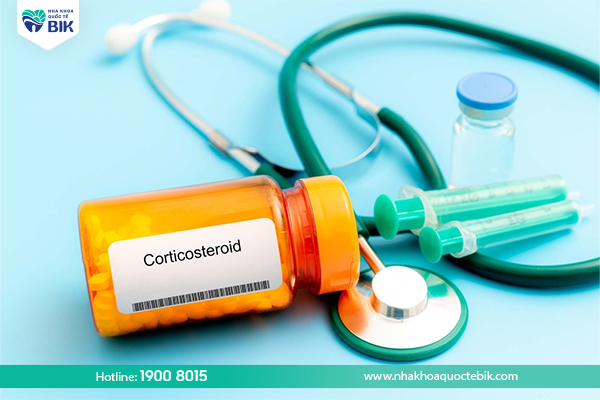
4. Treat purulent gingivitis at the dentist
To completely treat purulent gingivitis, customers need to go to the dentist for an examination to determine the specific cause of the disease. After that, the doctor will proceed to treat purulent gingivitis with specific methods depending on each case so that the results are the highest.
Some techniques to treat purulent gingivitis include:
– Draining the pus: The doctor will make a small cut on the inflamed tooth root and then clean the infected area to prevent spreading to surrounding areas.
– Root canal treatment: The doctor will drill a small hole in the tooth until it is enough to remove the pulp inside. The patient will then be crowned with porcelain to restore aesthetics.
– Tooth extraction: In cases of severe tooth decay causing purulent gingivitis, the doctor should consider tooth extraction instead of filling to bring the highest efficiency.
– Using antibiotics: In cases where purulent gingivitis has spread around, the doctor will prescribe antibiotics.
So with the information that BIK International Dental Clinic has compiled above, we hope that customers have a clear understanding of what medicine to take for purulent gingivitis. In general, antibiotics and pain relievers only have a supportive effect on treatment and cannot completely cure purulent gingivitis. Therefore, customers still need to go to the dentist for intensive treatment to avoid serious complications later.


















